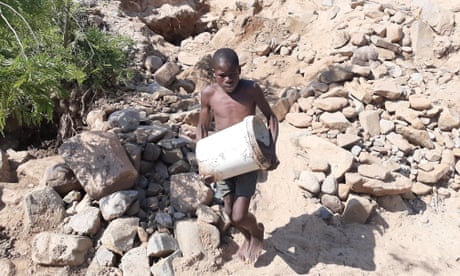I believe it is a dangerous romanticisation that children learn essential life skills from domestic work. What is it about tasks such as herding cattle, construction work, fetching water, pounding maize, agricultural labour, cooking for the family or looking after younger siblings that can be learnt only as a child? There is no evidence that the skills acquired through child labour – within the family or outside – are associated with better outcomes on any indicator of school performance, wellbeing or development. I can only repeat the response of an illiterate, landless labourer in rural Andhra Pradesh, India, to my question about why he wanted his children to study when the only jobs then available were in agriculture: “Sister, have you seen yourself?” he said. “We want our children to be like you, to walk and speak like you. So what if they have to work in agriculture? They will do it in a more scientific way. They will be able to keep accounts and read the instructions on a fertiliser packet.”
I do not suggest that children should not help with household chores, but this needs to be framed in terms of the age at which children start work, the nature of the task, and the number of hours worked. If children participate in these activities on a daily basis, or to an extent that jeopardises their school attendance and performance, their health, wellbeing and life chances will be compromised. It is for this reason that many activists make no distinction between good and bad child labour and consider anything that prevents a young person from getting a full-time, formal education to be child labour and, therefore, in contravention of the rights of the child.
Education is rightly regarded everywhere as a route out of poverty and underdevelopment. Compulsory education was one of the factors that helped to eradicate child labour in 19th-century Europe, the US and Japan. This was achieved mainly through the strict implementation of child labour and education laws, inducing a shift in parental perceptions about the returns from child labour, and changes in education being the sole preserve of the elites. Today’s rapidly changing and competitive global labour market has accentuated the premium on education.

Contextual constraints are important and set the limits to children’s aspirations and achievements, but it is precisely these constraints that have to be overcome. Poverty, tradition and religion all too often become the smokescreens behind which governments, international agencies and elites hide their inaction on child labour, education and other forms of exclusion. A range of countries have proved how the grip of poverty and negative cultural practices can be broken by political action and grassroots movements. The need now is to capitalise on the energies released by these initiatives and to forge ahead, instead of lapsing into justifications of an unsatisfactory status quo.
Individual stories are of course inspirational, but it does the children of the world no good to be sold a localised “American dream” of one youngster who beats the odds and becomes a success, when the overwhelming majority have little possibility of following in their footsteps. What is required is not the exception rising above the odds but changing the odds themselves. Otherwise, we risk another generation of children condemned to join an excluded underclass struggling on the margins.
